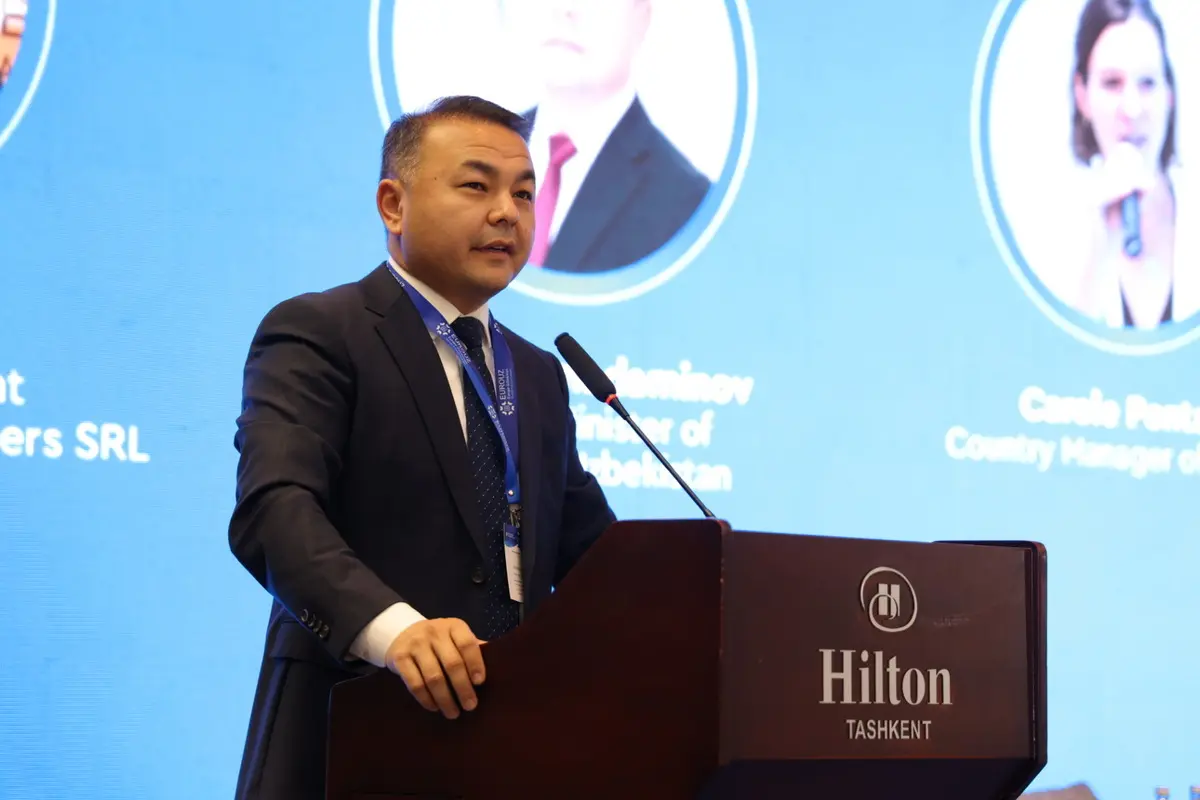Uzbekistan is taking strides toward establishing a regulatory framework for a carbon market and creating mechanisms for pricing carbon emissions, aiming to complete this work by the end of the year, Deputy Minister of Energy Umid Mamadaminov announced during the European Economy Days on November 6.

Mamadaminov highlighted the country’s progress in renewable energy, stating that more than 1 GW of solar panels have been installed on rooftops of commercial and residential buildings nationwide. Uzbekistan has also set a goal to reduce greenhouse gas emissions by 35% by 2030, in line with the Paris Agreement.
"To achieve this goal, we are integrating renewable energy sources and focusing on energy efficiency reforms, especially for large industrial enterprises and households," he said, emphasizing the importance of efficient energy consumption.
With support from international financial institutions, Uzbekistan is working on a carbon market and carbon pricing program. The Ministry of Finance, in partnership with the World Bank, is finalizing the regulatory framework necessary to support carbon trading. This framework is expected to attract both local and international investors, with the Ministry of Energy overseeing a sector responsible for approximately 70% of the country's emissions, signaling a substantial market opportunity.
Mamadaminov also discussed Uzbekistan’s “green corridor” project, a key international collaboration aimed at exporting surplus "green" electricity to Europe. Beginning in 2030, Uzbekistan plans to deliver eco-friendly energy through a transmission corridor via Azerbaijan, connecting Central Asia to Europe.
In July, Uzbekistan, Azerbaijan, and Kazakhstan signed a protocol in Astana to establish this "green energy" corridor, with the integration of their energy systems formalized in a memorandum at an investment forum in Tashkent.
"This project is already underway, and we anticipate formal approval by our leaders at the COP29 Climate Conference in Baku on November 11-22. It will facilitate exports of clean energy from our countries while helping Europe meet its emissions-reduction goals," Mamadaminov noted.
In 2023, Uzbekistan and the World Bank formalized an agreement in Marrakesh, Morocco, during the World Bank Group and International Monetary Fund Annual Meetings. The agreement provides $46.25mn in funding for the implementation of the iCRAFT project.
Uzbekistan also recently marked a milestone in climate financing, receiving a $7.5mn payment from the World Bank for reducing carbon emissions by 500,000 tons. This payment, under the Innovative Carbon Financing for Energy Sector Transformation of Uzbekistan (iCRAFT) project, is part of a unique World Bank initiative supporting Uzbekistan’s transition to sustainable energy, enhancing energy efficiency, and reducing energy subsidies. Part of this funding will support households affected by rising energy prices.
The iCRAFT project is helping Uzbekistan establish the necessary infrastructure and mechanisms for carbon market transactions and setting the stage for future climate finance programs with global partners and private investors. A recent World Bank report suggested that Uzbekistan could introduce additional climate finance tools, such as reinvesting carbon tax revenues or savings from reduced energy subsidies into green initiatives.
By adopting carbon pricing — through taxes or tradable allowances — Uzbekistan aims to incentivize low-carbon alternatives, making renewable energy more economically attractive and accelerating the green transition.
Follow Daryo's official Instagram and Twitter pages to keep current on world news.
Comments (0)